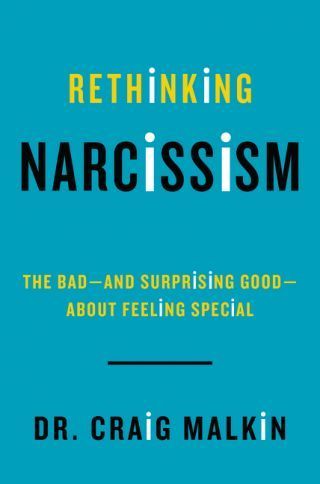Narcissism
How to Avoid Raising a Narcissist
Afraid your kid's too entitled? Quit worrying about praise and do this.
Posted June 5, 2015
It came as shocking, shocking! news recently that overpraising kids—making them feel special—will turn them into entitled little brats and raging narcissists. Well, that announcement hardly counts as groundbreaking. It's a warning parents have heard as far back as spare the rod, spoil the child.

There are several things wrong here.
For one, the study garnering all the attention, ominously titled, "Origins of Narcissism in Children," only shows a weak correlation between praise (technically, a praise-prone attitude, "overvaluing") and narcissism. It doesn't prove that praise—of any kind—"creates" narcissists.
There's only one experiment that could prove that: assign preschoolers randomly to three groups; in one, parents compliment kids ad nauseum, in the second, they act naturally, and in the third, they portion out praise according to precise guidelines. Then see which of the groups yields the most narcissists about 13 years later. No one's going to do that study even if they could.
What's worse, the "praise" study, like most narcissism research, assumes that feeling special is inevitably a bad thing. It's not. Feeling too special drives people to become grandiose and arrogant. That's when people demand attention, manipulate others, and show little empathy or compassion. They might even become mentally ill. But never or rarely feeling special leaves people so afraid of compliments or special attention that they're unsure of what they want or need, let alone how to ask for it.
There is actually a healthy middle. Indeed, the latest credible science shows that a moderate degree of narcissism is necessary to be a productive, caring, and happy human being. In kids and adults, feeling a little special is linked to creativity, assertiveness, and leadership. Moderately narcissistic teens have better relationships and survive the constant assaults on their fragile egos—bad grades, dating rejection, losing the big game—with their self-esteem and confidence intact. Leaders with moderate narcissism are rated as more effective by their employees than those with too little or too much. And in my own research, it's people at the very low or high end of the narcissism spectrum who struggle with depression, anxiety, and the capacity to love.
The worst possible outcome of all the buzz around a story like this is that parents start doling out praise like candy because they're worried it'll harm their kids' health. It's not going to do a thing.
It isn't telling our kids they're special that sets them on the wrong path. It's telling them they're special only when they do great things. Parking them on pedestals for being varsity league players and bashing them when they don't get straight A's. Reserving compliments only for the most extraordinary moments in their lives. What damages them is making them afraid to enjoy achievement and feel proud, failing to appreciate their gifts, never supporting them in their grand dreams. What really hurts them the most, in other words, is leaving them in constant doubt that they're special to the people they love —no matter what they do. Succeed or fail. Laugh or cry. Persevere or quit.
The psychological term for such unconditional love is secure attachment: the ability to depend on others, ask for help, express the need for closeness, and trust that our loved ones have our backs. It's not measured at all in this study. And yet, it's the kind of love most narcissists don't know how to give or receive. It all about feeling special to the people we love, and that turns out to be the most important—and healthy—way to live our lives, whether we're tiny children or full-grown adults. No one wants to feel like a faint flickering light in the vast universe. We all long to feel like the brightest star to someone, in some way, cherished above all others around us.
In the movie, A Little Princess, a girl, separated from her father by war, tells the woman looking after her that every daughter should feel like a princess. "All girls are! Even if they live in tiny old attics, even if they dress in rags, even if they aren't pretty, or smart, or young, they're still princesses—all of us! Didn't your father ever tell you that? Didn't he?" That belief kept her going through years of heartache and loss—until she could see her father again.
Go ahead and tell your kids they're special as much as you like. Celebrate their accomplishments and let them see the proud gleam in your eyes, but make sure they know you adore them for who they are, regardless of whether or not they win or succeed. Make sure they feel exceptional because you love them and understand them—their sadness, fears, worries, and even grandest dreams—and, instead of trampling on people around them, they're bound to feel special enough to tackle life with empathy, passion and joy.

Like what you read? Order Dr. Malkin’s book, Rethinking Narcissism, today.
“[Dr. Malkin’s] reassuring tone and plethora of case histories offer considered advice and generous encouragement.” Kirkus Reviews
“... a true gem on the subject of narcissism.” Library Journal
more advance praise from experts and critics
Follow me on Facebook and Twitter and sign up for my newsletter, for more tips and advice, as well as information on my book, Rethinking Narcissism: The Bad—And Surprising Good—About Feeling Special, devoted to understanding and coping with narcissism in all its forms, in our friends, lovers, colleagues–and even ourselves. (Harperwave and Harper UK, July 2015.)
A version of this article previously appeared in the Huffington Post




